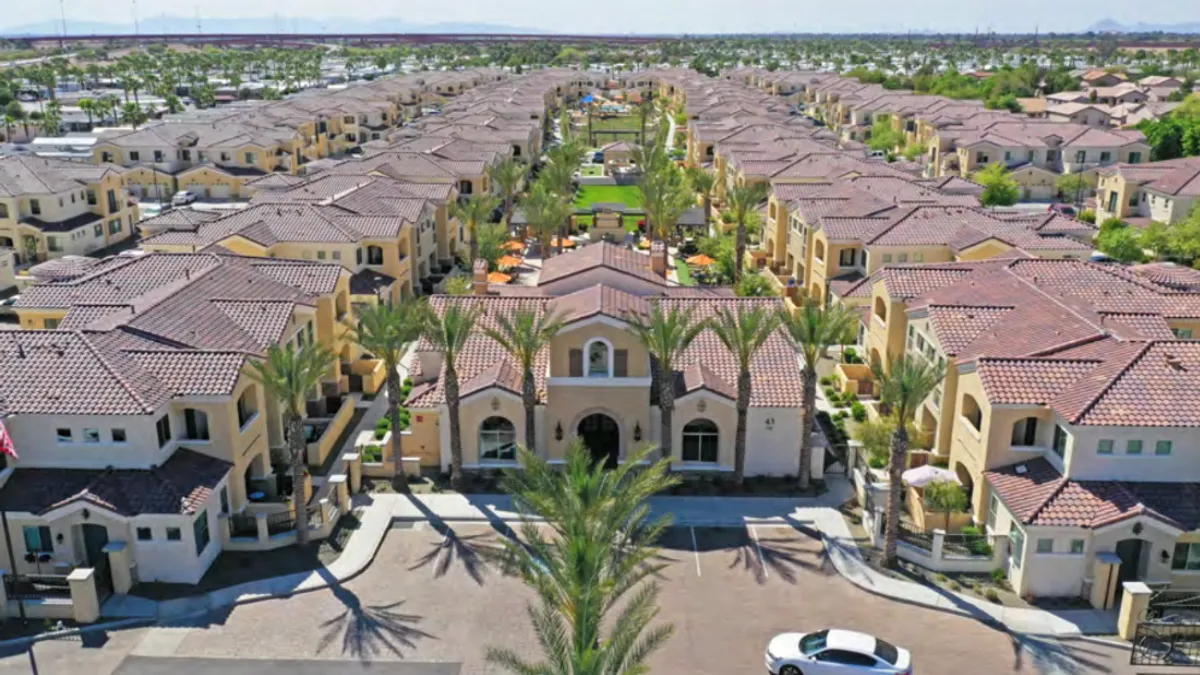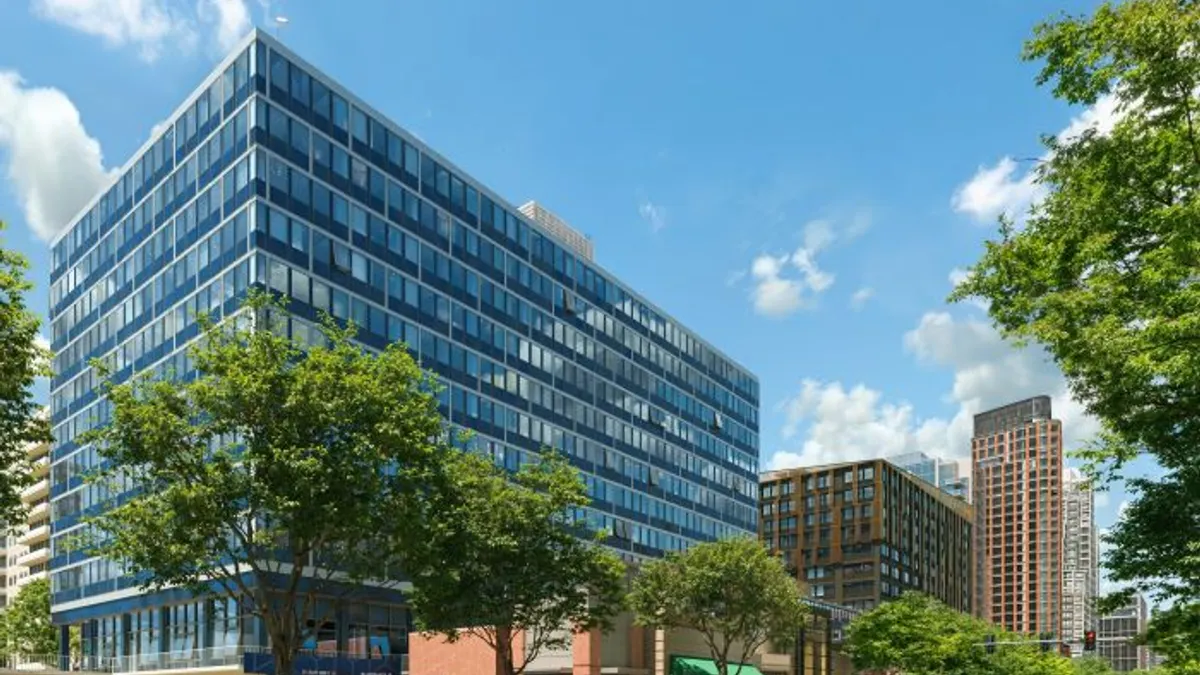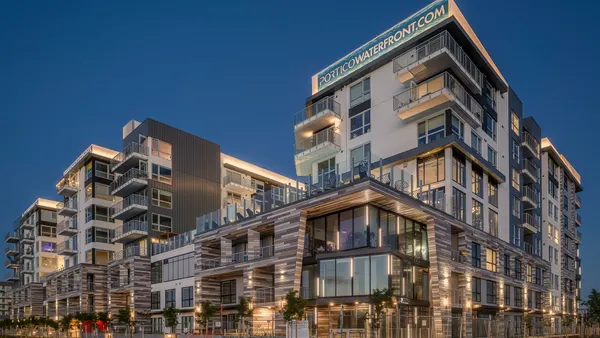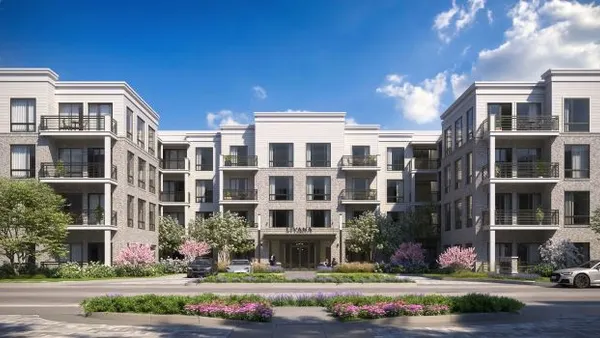Private garages are a rarity at rental communities, and electric vehicle charging stations, while growing in popularity, are still a limited offering as well. In a bold move, the development and management team behind Bella Victoria, a 236-unit rental community located west of Phoenix in Mesa, Arizona, has combined the two to create a unique standard feature — EV charging stations in all private resident garages.
Every unit at Bella Victoria, constructed in 2020 by Mesa-based home builder Bela Flor and managed by Phoenix-based MEB Management Services, has access to its own private garage and Level 2 high-speed vehicle charger, compatible with a variety of electric vehicle models.
Floor plans at the community range from two to three bedrooms, with rents starting at $1,970. In addition to the private garage and EV charging, all units are Energy Star–certified and equipped with smart thermostats, LED lighting, smart water heaters and high-speed fiber-optic wiring.
The team is now underway on a second rental property — Bella Encanta, also located in Mesa — which will also include private EV charging and sustainable unit features. The project is expected to open for leasing this month.
Here, Hudd Hassell, president of Bela Flor, spoke with Multifamily Dive about the technical specs of the Bella Victoria project, the resources necessary to make it work and the future of EV chargers at multifamily properties.
This interview has been edited for brevity and clarity.
MULTIFAMILY DIVE: Does every resident at Bella Victoria have a private garage?
HUDD HASSELL: Yes. Every resident at Bella Victoria has a private, one-car garage. EV charging will take place inside each garage. In addition, 50% of the units have a private driveway in front of the garage and charging could take place there, too.
How has the property's strategy evolved over time?
We’ve always had a strong sense that EVs would eventually become prevalent in the U.S. like they are in other countries, such as Norway. Now, with the passage of the Inflation Reduction Act last year, the adoption of EVs has been greatly accelerated.

To that end, we made sure to include as much of the electrical infrastructure as possible upfront during construction. This includes 200-amp panels for each unit, the large electrical equipment (800-amp service entry section switch gear, which provides power to each of the panels) and oversized transformers from our utility provider, Salt River Project, that provide power to that gear.
With time, we’ve seen more and more people interested in and asking about accommodating electric vehicles.
What were the challenges to setting up and installing the charging program?
The biggest challenge was the back-end infrastructure. The transformers from SRP, the switching gear on the buildings and the panels in each unit all had to be upsized. Only when all of that was done could we complete the process by installing a dedicated 50-amp circuit to the charging port.
How much did the project cost?
The budget was $6,000 per port, or $1.4 million. The actual spend was closer to $7,500 per port, or $1.8 million.
Did the company receive any tax credits for installing EV chargers? How did the company justify the cost?
Arizona doesn’t offer anything yet, but we hope to take advantage of the new federal tax credits outlined in the recently passed Inflation Reduction Act legislation. We are also looking into what incentives the local utilities can provide.
We justified the install cost when viewing ownership from a long-term perspective. We don’t usually sell our projects. We also knew EVs were coming and we wanted to be competitive when that time came to differentiate ourselves from other properties nearby.
Are you anticipating that this offering may become standard?
We believe private EV charging is the ultimate luxury and will become standard in the future. Currently, we are piloting a program where EV charging is free to any resident. This will distinguish our property from others that aren’t able to offer this amenity, and should create some buzz for us in the community.
How do you plan to incorporate EV charging and smart tech at Bella Encanta and other future properties?
Bella Encanta has mostly two-car garages, so we will likely install two chargers and charging ports in each garage and share the dedicated 50-amp circuit. Most Level 2 chargers these days have built-in smarts to manage this.
What should other project owners know about setting up their own program?
Plan from the beginning. Retrofits will be prohibitively costly. EV sales are growing — this is the future.









